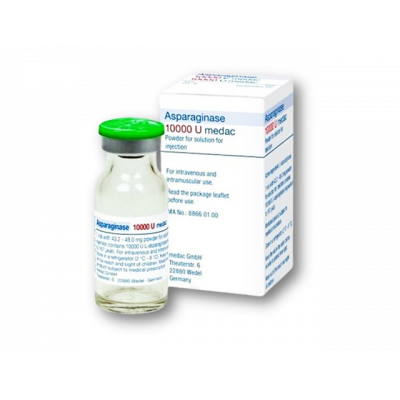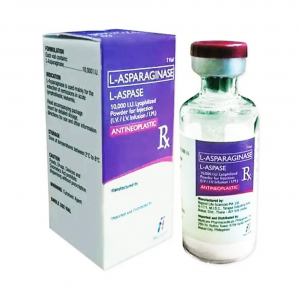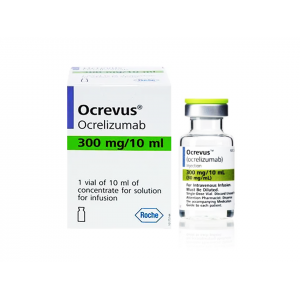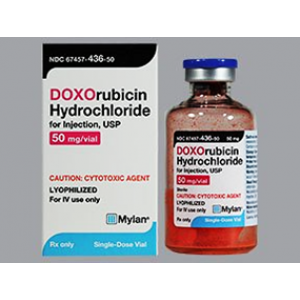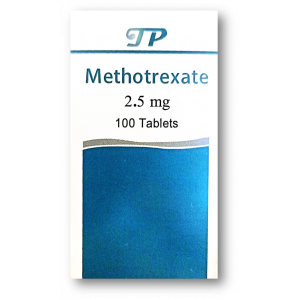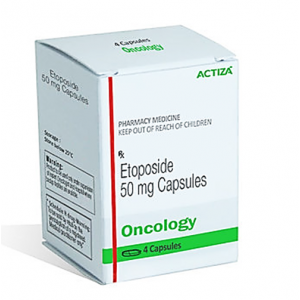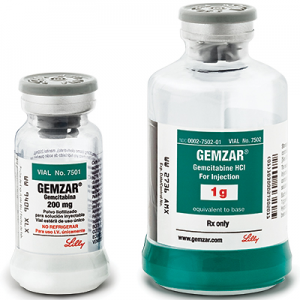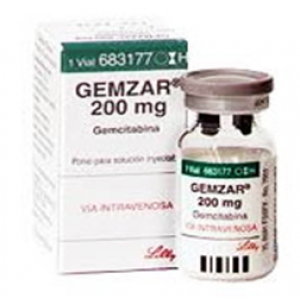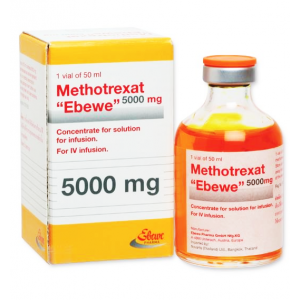- Anti-hestaminic & Respiratory Drugs (20)
- Anti-inflammatory Drugs (192) +-
- Baby & Mom (1314) +-
- Baby & Mom > Bath, skin & Hair > Skin Care > wibes (52)
- Beauty (2918) +-
- Beauty > Skin Care > whitening (274)
- Chemotherapy & Immune Response (882) +-
- Chemotherapy & Immune Response > ANTI-FUNGAL (11)
- Chemotherapy & Immune Response > Chemotherapeutic Agents > Hormone Antagonists >Enzyme Inhibitors (289)
- CIRCULATORY DISTURBANCE AGENTS (24)
- Diet & Fitness Products (280) +-
- DRUG AFFECTING CENTRAL NERVOUS SYSTEM (191)
- HEMATOLOGY (39)
-
Medical Supplies (503)
+-
- Chemicals & Disinfectants (19)
- Dental Supplies (31)
- Devices & Instruments (10)
- Diabetic Supplies (121)
- General Medical Supplies (21)
- I.V & Medical Solution (0)
- Intensive Care Unit & Anesthesia Supplies (0)
- KIDNEY UNIT SUPPLIES (21)
- Lab Supplies (3)
- Miscellaneous (21)
- Neonatal Unit Supplies (0)
- Operation Room Supplies (2)
- Sanitary (5)
- Sterilization Supplies (0)
- Surgical Sutures (4)
- Syringes (3)
-
Medicines & Health (2602)
+-
- Allergy & Sinus (95)
- Children's Health Care (54)
- Cough, Cold & Flu (277)
- Digestive Health & Nausea (225)
- Ear, Nose & Throat Care (179)
- Eye Care (117)
- Feminine Care (321)
- Foot Care (4)
- Orthopaedic Appliances (0)
- Pain Relief & Management (237)
- Pill Organizer (2)
- Skin Treatments (785)
- Sleep & Snoring Aids (2)
- Support & Braces (7)
- Medicines & health > Gout releif (42)
- Natural & Organic Products (81) +-
- OTC > Analgesics > Anti-inflammatory Drugs (44)
-
Personal Care (3199)
+-
- Bath & Body (264)
- Deodorant & Anti-perspirants (182)
- Ear, Nose & Throat Care (175)
- Eye Care (123)
- Feminine Care (370)
- Foot Care (12)
- Hair Care (472)
- Home Tests & Monitorings (14)
- Incontinence (7)
- Lip Care (22)
- Massage & Relaxation (17)
- Natural & Organic Personal Care (7)
- Oral Care (88)
- Pregnancy & Fertility (64)
- Shaving & Grooming (65)
- Sun Care (78)
-
Prescription Drugs (2870)
+-
- Analgesics (181)
- Cardiovascular System (374)
- Drugs Affecting Musculoskeletal System (65)
- Drugs Used In Infections (56)
- Ear & Nose Drugs (2)
- Endocrine System (176)
- Gastrointestinal Tract (242)
- Gastrointestinal Tract > Hepatology > Liver treatment (61)
- GYNECOLOGY (2)
- Miscellaneous (11)
- NEPHROLOGY > URINARY SYSTEM > RENAL DISORDERS > URINARY TRACT DISORDERS (46)
- NEUROLOGY (222)
- Nutrients & Blood Electrolytes (2)
- Respiratory System (154)
- SKIN > NAILS > HAIR > TOPICAL PREPARATIONS (68)
- Vaccines (1)
- Prescription drugs > Cardiovascular system > Anti-hypertension drugs (242)
- Sexual Wellness (301) +-
- Vitamins & Minerals Supplements (1197) +-
Ex Tax: 2,500EGP
Example
You can return the product within 14 days of purchase.
ReturnsYou can return the product within 14 days of purchase.

Asparaginase is a chemotherapy drug. It is also known as Spectrila, Erwinase and Oncaspar.
It as a treatment for acute lymphoblastic leukaemia (ALL).
You pronounce asparaginase as as-para-jih-nays.
There are different types of asparaginase. How often you have asparaginase depends on which type you are having. Pegaspargase (Oncaspar) stays in the body for longer than asparaginase (Spectrila and Erwinase). So you have it less often.
How does asparaginase work?
All cells need a substance called asparagine to make proteins and create new cells. Asparaginase is an enzyme that breaks down asparagine. Unlike normal cells, ALL cells are unable to make their own asparagine. So asparaginase stops the cancer cells from dividing and growing.
How do you have asparaginase?
You have asparaginase and pegaspargase as an injection into a muscle (intramuscular) or as a drip into your bloodstream (intravenously).
How you have it depends on the type of asparaginase used.
Injection into a muscle
You have the injection into a muscle, usually into your buttock or upper thigh.
Into your bloodstream
You have treatment through a thin short tube (a cannula) that goes into a vein in your arm each time you have treatment.
Or you might have treatment through a long line: a central line, a PICC line or a portacath. These are long plastic tubes that give the drug into a large vein in your chest. The tube stays in place throughout the course of treatment. This means your doctor or nurse won't have to put in a cannula every time you have treatment.
Find out more about giving drugs into the bloodstream
How often do you have asparaginase?
How often you have asparaginase depends on the type you are having. Your medical team will let you know.
Asparaginase can be given in combination with other cancer drugs.
Tests
You have blood tests before and during your treatment. They check your levels of blood cells and other substances in the blood. They also check how well your liver and kidneys are working.
What are the side effects of asparaginase?
Side effects can vary from person to person. They also depend on what other treatments you're having.
When to contact your team
Your doctor, nurse or pharmacist will go through the possible side effects. They will monitor you during treatment and check how you are at your appointments. Contact your advice line as soon as possible if:
you have severe side effects
your side effects aren’t getting any better
your side effects are getting worse
Early treatment can help manage side effects better.
| Contact your advice line immediately if you have signs of infection, including a temperature above 37.5C or below 36C. |
We haven't listed all the side effects here. Remember it is very unlikely that you will have all of these side effects. But you might have some of them at the same time.
Common side effects
These side effects happen in more than 10 in 100 people (more than 10%). You might have one or more of them. They include:
- Increased risk of infection
Increased risk of getting an infection is due to a drop in white blood cells. Symptoms include a change in temperature, aching muscles, headaches, feeling cold and shivery and generally unwell. You might have other symptoms depending on where the infection is.
Infections can sometimes be life threatening. You should contact your advice line urgently if you think you have an infection.
- Blood clots
Blood clots can develop in the deep veins of your body, usually the leg. This is called deep vein thrombosis (DVT). A blood clot can be very serious if it travels to your lungs (pulmonary embolism).
Symptoms of a blood clot include:
• pain, redness and swelling around the area where the clot is and may feel warm to touch
• breathlessness
• pain in your chest or upper back – dial 999 if you have chest pain
• coughing up blood
| Tell your doctor immediately or go to A&E if you have any symptoms of a blood clot. |
- Diarrhoea
Contact your advice line if you have diarrhoea. For example, in one day you have 2 or more loose bowel movements than usual. If you have a stoma Open a glossary item, you might have more output than normal. Your doctor may give you anti diarrhoea medicine to take home with you after treatment.
Try to eat small meals and snacks regularly. It’s best to try to have a healthy balanced diet if you can. You don’t necessarily need to stop eating foods that contain fibre. But if your diet is normally very high in fibre, it might help to cut back on high fibre foods such as beans, nuts, seeds, dried fruit, bran and raw vegetables.
Drink plenty to try and replace the fluid lost. Aim for 8 to 10 glasses per day.
- Feeling or being sick
Feeling or being sick is usually well controlled with anti sickness medicines. It might help to avoid fatty or fried foods, eat small meals and snacks and take regular sips of water. Relaxation techniques might also help.
It is important to take anti sickness medicines as prescribed even if you don’t feel sick. It is easier to prevent sickness rather than treat it once it has started.
- Inflammation of the pancreas
This drug can cause inflammation of the pancreas (pancreatitis). Tell your doctor straight away if you have sudden and severe pain in your tummy (abdomen).
- An allergic reaction
A reaction may happen during the infusion. Symptoms can include a skin rash, itching, swelling of the lips, face or throat, breathing difficulties, fever and chills. Your nurse will give you medicines beforehand to try to prevent a reaction.
| Tell your doctor or nurse immediately if at any time you feel unwell. They will slow or stop your drip for a while and give you medicine to help relieve your symptoms. |
- Loss of appetite and weight loss
You might not feel like eating and may lose weight. Eating several small meals and snacks throughout the day can be easier to manage. You can talk to a dietitian if you are concerned about your appetite or weight loss.
- High levels of pancreatic and liver enzymes
You might have changes in the levels of pancreatic and liver enzymes such as amylase and lipase. You have regular blood tests during treatment to check for this.
- High blood sugar levels
High blood sugar levels can cause headaches, feeling thirsty and blurred vision. You have regular tests to check your blood sugar levels. You may need to check your levels more often if you have diabetes Open a glossary item.
- Changes to the way your blood clots
You may have changes to the way your blood clots which can cause bleeding and bruising.
- Low levels of albumin in your body
Albumin is an important protein in your body. Low levels of albumin can cause weakness, muscle cramps and swelling in different parts of your body. You have regular blood tests to check the albumin levels.
- High levels of bilirubin
You might have high levels of bilirubin in your blood. You will have regular blood tests to check the bilirubin levels.
- High blood cholesterol
Cholesterol is a fatty substance which helps cells in the body to work normally. When the cholesterol level is too high it could have an effect on your heart. You usually have blood tests to check your cholesterol levels.
- Skin rash
Skin problems include a skin rash, dry skin and itching. This usually goes back to normal when your treatment finishes. Your healthcare team can tell you what products you can use on your skin to help.
- Tiredness (fatigue)
You might feel very tired and as though you lack energy.
Various things can help you to reduce tiredness and cope with it, for example exercise. Some research has shown that taking gentle exercise can give you more energy. It is important to balance exercise with resting.
- Changes to your blood pressure
During treatment, your blood pressure may be lower than normal. Tell your nurse if you feel dizzy or faint.
- Tummy (abdominal pain)
Tell your treatment team if you have this. They can check the cause and give you medicine to help.
- Fluid build up (oedema)
A build up of fluid may cause swelling in your arms, hands, ankles, legs, face and other parts of the body. Contact your healthcare team if this happens to you.
Occasional side effects
These side effects happen in between 1 and 10 out of every 100 people (between 1 and 10%). You might have one or more of them. They include:
- a drop in the level of platelets which can cause bruising and bleeding
- feeling breathless and looking pale due to a drop in red blood cells
- mouth sores and ulcers
- liver damage which usually gets better when you stop treatment
- a severe infection called sepsis which can be life threatening if not treated early
- pain in your arms and legs
- seizures (fits)
- numbness and tingling in your feet or hands
- fainting or passing out
- drop in the levels of oxygen in your body
- low mood (depression) and sleepiness
- confusion and seeing or hearing things that are not there (hallucinations)
- dizziness
- low blood sugar levels
- feeling agitated
- back pain
- pain in your joints
- breathlessness
- low potassium levels
Rare side effects
This side effects happens in fewer than 1 in 100 people (fewer than 1%).
- bleeding in your pancreas
- yellowing of the skin and the whites of your eyes (jaundice) due to a build up of bilirubin in your body
- severe liver problems such as liver failure which can be life threatening if not treated early
- a collection of symptoms called posterior reversible encephalopathy which can cause headaches, fits, confusion, and loss of vision
- a severe and potentially life threatening allergic reaction called anaphylaxis – your treatment team will monitor you closely while you are having this treatment
- stroke
What else do I need to know?
- Other medicines, foods and drinks
Cancer drugs can interact with medicines, herbal products, and some food and drinks. We are unable to list all the possible interactions that may happen. An example is grapefruit or grapefruit juice which can increase the side effects of certain drugs.
Tell your healthcare team about any medicines you are taking. This includes vitamins, herbal supplements and over the counter remedies. Also let them know about any other medical conditions or allergies you may have.
- Loss of fertility
It is not known whether this treatment affects fertility Open a glossary item in people. Talk to your doctor before starting treatment if you think you may want to have a baby in the future.
- Pregnancy and contraception
This treatment might harm a baby developing in the womb. It is important not to become pregnant or get someone pregnant while you're having treatment and for a few months afterwards.
Talk to your doctor or nurse about effective contraception before starting treatment. Let them know straight away if you or your partner become pregnant while having treatment.
- Breastfeeding
It is not known whether this drug comes through into the breast milk. Doctors usually advise that you don’t breastfeed during this treatment.
Treatment for other conditions
If you are having tests or treatment for anything else, always mention your cancer treatment. For example, if you are visiting your dentist.
Immunisations
Don’t have immunisations with live vaccines while you’re having treatment and for up to 12 months afterwards. The length of time depends on the treatment you are having. Ask your doctor or pharmacist how long you should avoid live vaccinations.
In the UK, live vaccines include rubella, mumps, measles, BCG, yellow fever and one of the shingles vaccines called Zostavax.
You can have:
- other vaccines, but they might not give you as much protection as usual
- the flu vaccine (as an injection)
- the coronavirus (COVID-19) vaccine - talk to your doctor or pharmacist about the best time to have it in relation to your cancer treatment
Members of your household who are aged 5 years or over are also able to have the COVID-19 vaccine. This is to help lower your risk of getting COVID-19 while having cancer treatment and until your immune system Open a glossary item recovers from treatment.
*Contact with others who have had immunisations - You can be in contact with other people who have had live vaccines as injections. Avoid close contact with people who have recently had live vaccines taken by mouth (oral vaccines) such as the oral typhoid vaccine. Sometimes people who have had the live shingles vaccine can get a shingles type rash. If this happens they should keep the area covered.
If your immune system is severely weakened, you should avoid contact with children who have had the flu vaccine as a nasal spray as this is a live vaccine. This is for 2 weeks following their vaccination.
Babies have the live rotavirus vaccine. The virus is in the baby’s poo for about 2 weeks and could make you ill if your immunity is low. Get someone else to change their nappies during this time if you can. If this isn't possible, wash your hands well after changing their nappy.
Write a review
Your Name:Your Review: Note: HTML is not translated!
Rating: Bad Good
Enter the code in the box below:

